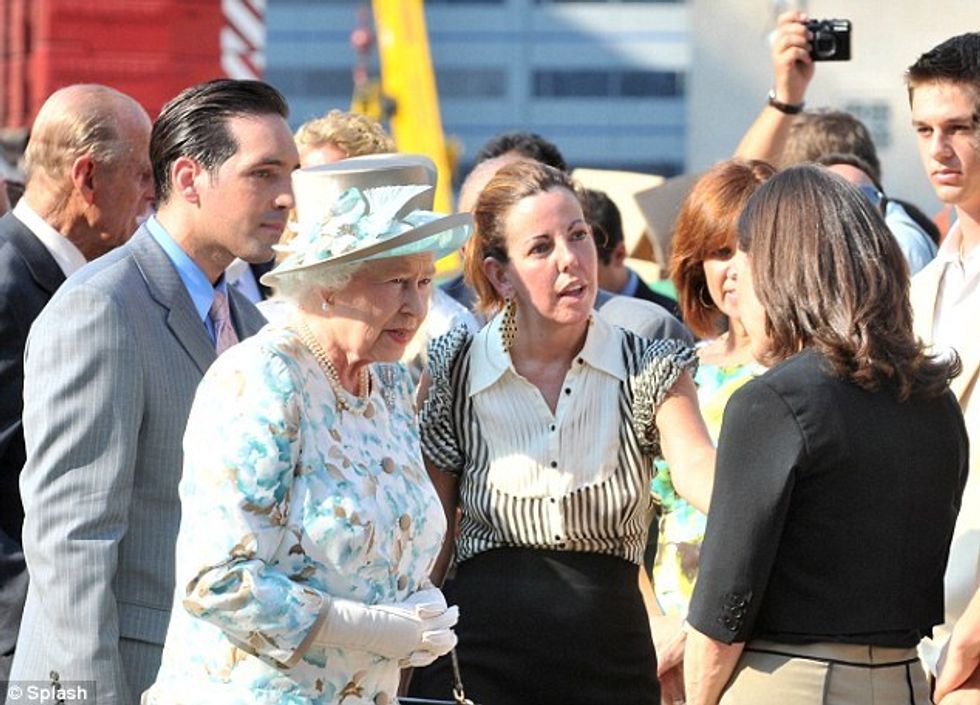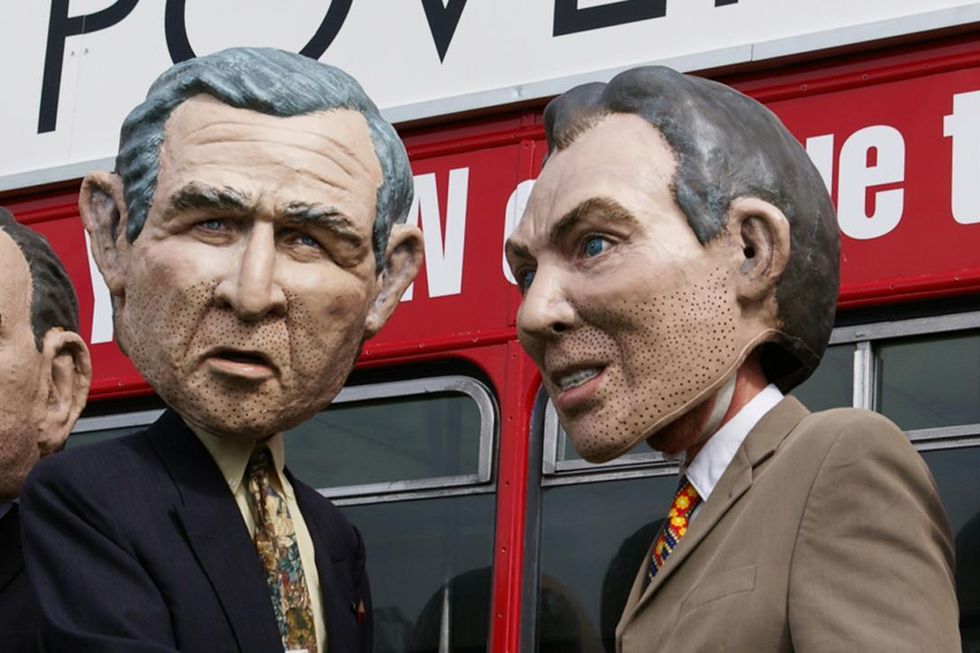"Mom, Do We Have to Say We're American?"
A Question I Don't Want to Have to Answer Ever Again
The low point came shortly after George W Bush won re-election in 2004. To set the scene:
By then we'd been living in London for four years, having moved here just weeks before the attacks on the Twin Towers. For days afterward, friends and neighbors stopped by our corner home in Chelsea to offer the kind of condolences more common following personal loss, showing compassion rarely expressed by people justly known for their reserve.

But then came the Bush/ Cheney serial debacles that destabilized the Middle East and much of the rest of the world. Our neighbors in London, felt baffled and betrayed by this intervention. Just as they had embraced us after 9/11, they shunned us in 2004.
And so to that low point: I was walking through Hyde Park with my daughter, then aged six. With no preamble of any kind, she turned to me and asked, "Do we have to tell people we're American?"

In that moment, all I could think of were my immigrant grandparents and the tales of hardship, loss and derring do they told to me to covey all that America meant to them: freedom, security and justice. It was a take on American that I never questioned. Now here was my daughter, just two generations removed, questioning it.
Why? Because she was aware of the stigma around Americans at that time. She felt it deeply because she was too young to have been aware of any president other than Bush, and didn't know it was possible to make a distinction between the poisonous policies of a particular President and the fundamental nature of her country. But even as I tried to explain, I was mindful that her question carried implications for the relationship between America and the rest of the world.
Things changed when American elected Barack Obama. It didn't take long for our neighbors to recognise that the Bush years had been an aberration, or that perhaps Americans had learned that to betray its founding principles was to alienate its allies. Overnight, neighbors were congratulating rather than snubbing or berating us. A wave of patriotism swept Americans living abroad, pulling my son, a rising high school senior at the start of Obama's second term to the Naval Academy at Annapolis—his entire idea of patriotism transformed by elections that changed the dynamic between American and the world. It is a country he is proud to serve. And why not?
Now we're at another moment when our national identity is at risk. Day after day, cab drivers, hairdressers, newspaper vendors, waitresses and waiters whether they know me or not, ask if I'll be voting for Trump.
And time after time, my "no", receives a thumbs up in reply. "No" because he is racist and sexist and our country is meant to guarantee the rights of all people. "No" because he has no regard for separation of powers and due process, both enshrined in our Constitution. "No" because a man who asserts that we have a nuclear arsenal in order to deploy it, is too dangerous be President. "No" because a man who campaigns by hectoring, bullying, and generating reams of degrading Tweets is temperamentally unfit to be President.
Finally, last week when I went for a routine appointment, a nurse ran through the usual series of health-related questions, then had one more: "Hillary?" she asked. Now it was my time to give the thumbs up. She heartily nodded in approval, and mirrored my gesture.
Like scores of thousands of US citizens living abroad, our family will be getting out the vote for Clinton-Kaine. No American parent should have to answer the question my daughter had for me that day. And under their leadership, they never will.
###
September 14, 2016
Addendum. How to vote if you are abroad.
Registration? Absentee Ballot Request. To vote from abroad, you have to register to vote with local election officials in your state of legal (voting) residence, AND every year you have to request to receive absentee ballots. You can use one form to do both --The Federal Post Card Application (FPCA)
Here is the link you need for Absentee Voting Information for U.S. Citizens Abroad

